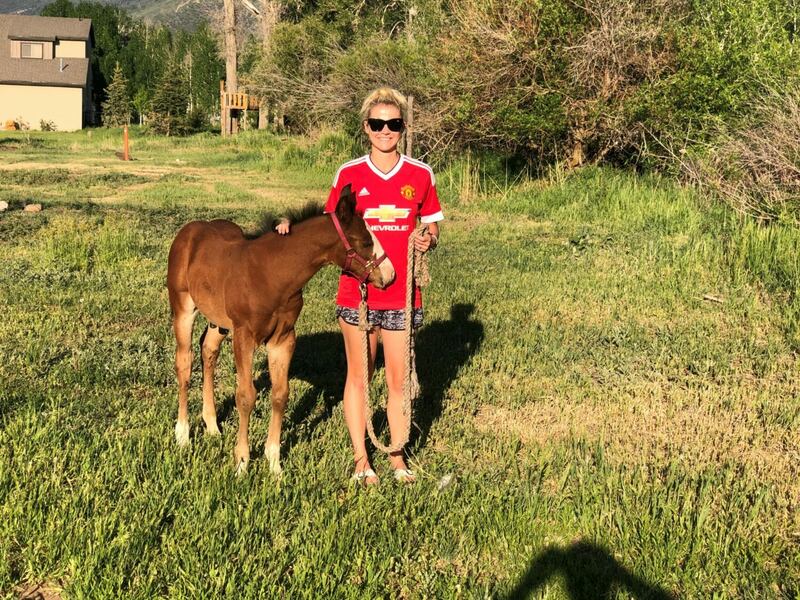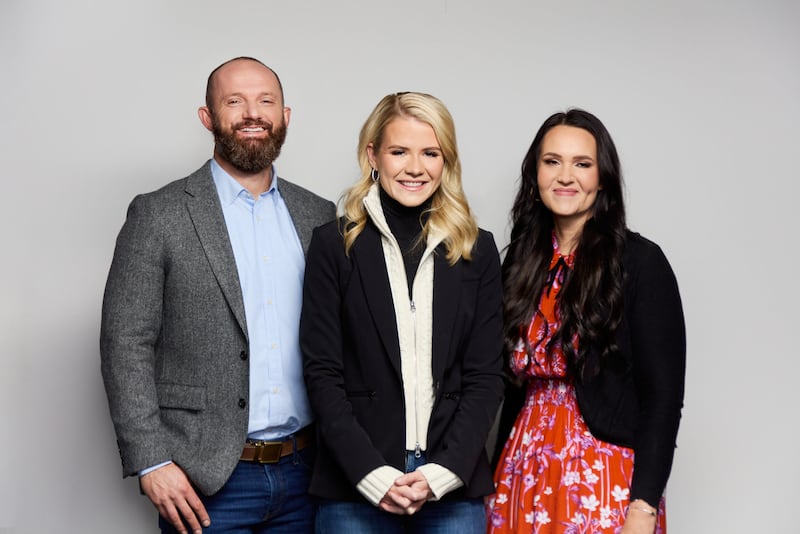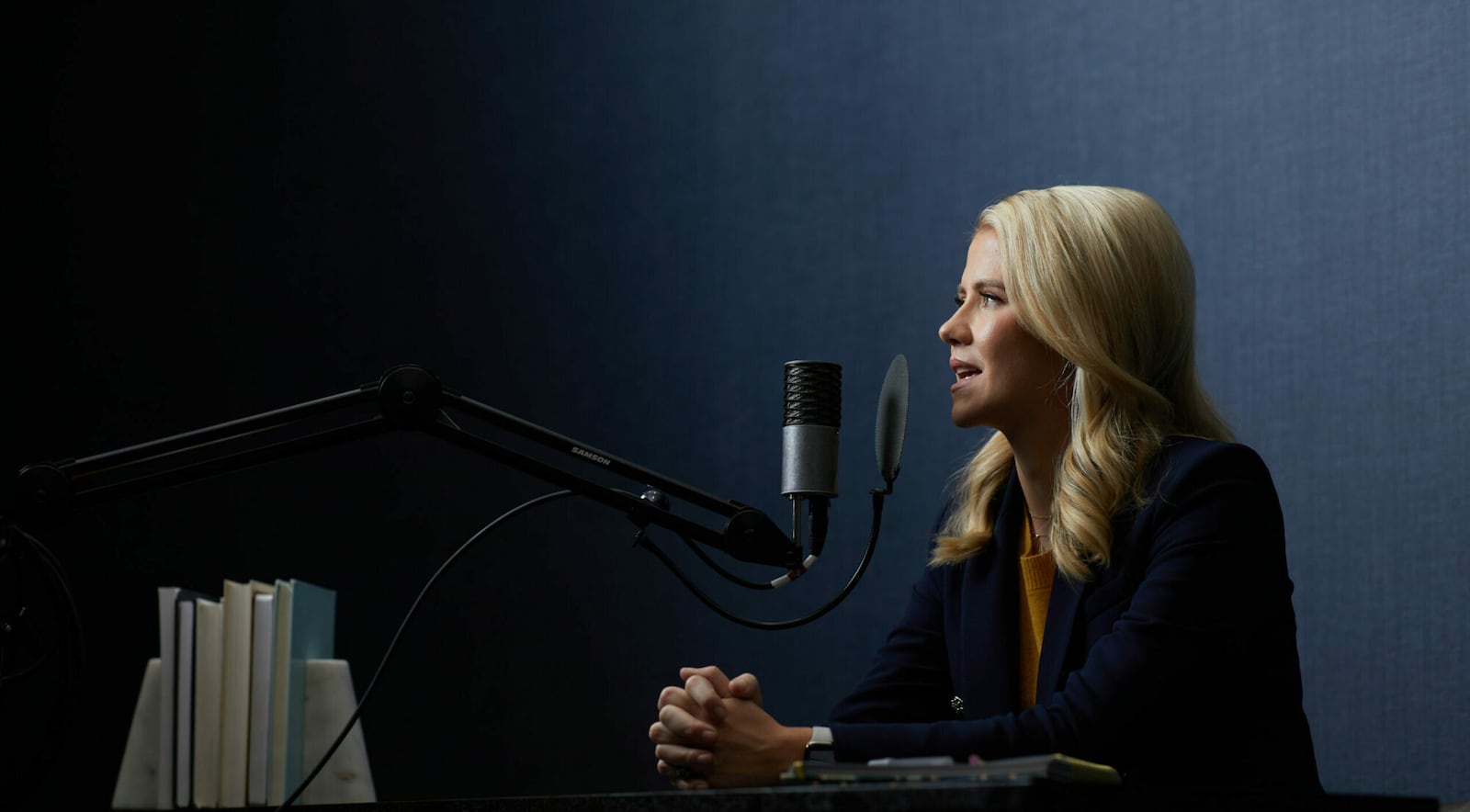The Founder Series is a column by and about Utah founders and how they got to where they are today. Click here to read past articles in the series.
My whole life has prepared me for the work I’m doing today. One day, just over 20 years ago, I was kidnapped from my bedroom by a strange man with a knife. Brian David Mitchell, with the help of his wife, Wanda Barzee, held me hostage, and I faced repeated horrors as their captive. They kept me incredibly isolated and made me feel worthless. The threat of my death and the death of my loved ones hung over my head daily, and sexual assault and rape were a constant part of my life.
Nine months later, a bystander saw me walking with Mitchell and Barzee on State Street in Sandy, Utah. They recognized something about the situation and called the police. On one of the most joyous days of my entire life, Mitchell and Barzee were arrested, and I was reunited with my family.
When I came home, all I wanted was to be a normal 15-year-old girl. I wanted to go to high school, hang out with my friends, ride horses, and play the harp. A thrilling existence, I know. But at the time, I felt like I had encountered enough public attention to last a lifetime. , which toughened restrictions on sex offenders and increased measures to protect children. I worked with politicians for the first time, and I even met the president.

At the time, it was very overwhelming to step back into the spotlight—which I had tried so hard to avoid. However, it felt worth it to make a difference! I continued to advocate for changes that felt right, like the Amber Alert, and connected with other survivors through the Department of Justice. In 2010, I took the stand against Brian David Mitchell. I finally appreciated the impact that my story and my voice could have when Mitchell was sentenced to life in prison.
Eventually, I wanted to begin speaking out more, and I was often invited to events to share my perspective. At these events, something kept happening to me over and over and over—people, mostly women, would approach me and share their experiences with abuse and sexual violence. Often, they would tell me that I was the first person they had ever told because no one else would believe them. They said that they felt totally alone, and I completely understood!
I didn’t want to talk about what happened to me when I came home. Like I said, I wanted to move on and be normal, but what happened to me was not normal. As I got older, I appreciated the time I spent with other survivors. There is a very meaningful connection that occurs when you talk about the dark things that happened in your life, and someone doesn’t say, “I’m so sorry that happened to you,” and instead says, “Yes, I’ve felt the same way!”
I knew, hypothetically, that one person could make a difference, but in my mind, that person was never me. As I met these courageous individuals who trusted me to receive their darkest moments, it made me think—maybe it could be me. In 2011, the year after I testified against Mitchell, I received the Courage Award from world-renowned fashion designer Diane von Furstenberg and the Diller – Von Furstenberg Family Foundation. I met some amazing women that day, and I saw what a career centered around advocacy could look like. The award came with $50,000—my father and I used to officially start the Elizabeth Smart Foundation.
The Elizabeth Smart Foundation has come a long way in 10 years. From 2011-2019, we helped by funding other nonprofits that were combatting sexual assault and supporting survivors. This helped us explore the work that was being done through organizations like Raksha Nepal, HELP International, and Jane—and understand where we could make the biggest impact.
Beginning in 2019, we shifted our perspective from one of support to one of action. With this outlook, we launched three new programs: Smart Defense, Smart Talks, and We Believe You. Today, our mission is to bring hope while ending the victimization and exploitation of sexual assault through education, healing, and advocacy.
In January 2022, the Elizabeth Smart Foundation (ESF) made a big change. We officially joined forces with the Malouf Foundation. I learned about Malouf Companies and the Malouf Foundation through their free digital training program, OnWatch. A question I often get asked is how to recognize the signs of abuse or trafficking, and I honestly didn’t have a good answer until I took this training! After I completed the training, I saw Malouf is headquartered in Cache Valley, Utah, and I couldn’t wait to get to know the team who made this incredible survivor-led training. (Also, I recommend in almost every interview to take the training at IAmOnWatch.org!)
We started working together in small ways, but I was thinking bigger and planning to propose a deeper partnership. Malouf had the structure, resources, and scalable plans to take the Elizabeth Smart Foundation’s goals to the next level. Fortunately, the Malouf team (led by Sam and Kacie Malouf) was just as inspired by the partnership. Each day I’m reminded that joining forces was the right choice. I know how to talk to survivors and collaborate, but I am absolutely not an expert in tax law or running a business. The Malouf team and my team perfectly complement each other’s strengths. Together, we are a unified voice against sexual exploitation, and I’m thrilled at what we’ve done together and what we will continue to do.

A program with a big future is Smart Defense. I had the idea for Smart Defense after I was sexually assaulted on an airplane. I fell asleep in my seat and woke up to a man rubbing my inner thigh. I froze. I didn’t know what to do! But if I didn’t know what to do, even though my whole career and history reinforced the need to be prepared, there must be a knowledge gap. It really reinforced how important tools like self-defense are for women and girls.
Since then, I’ve been lucky enough to work with Miyo Strong, the Smart Defense program director and actual World Master Champion in Jiu Jitsu. The trauma-informed program builds confidence in areas like setting boundaries, as well as understanding red flags, and combines that with techniques from Krav Maga, Jiu Jitsu, and Muay Thai. Public classes are available throughout Utah, and we recently expanded into Colorado, with Las Vegas next on the list. We also developed a kid’s camp that teaches children how to protect themselves, set boundaries, and practice consent in a fun, active environment.
In September, Southern Utah University became the first university to offer Smart Defense as part of its curriculum. According to the 2020 Association of American Universities’ Report on Sexual Assault and Misconduct, among undergraduate students, 26.4 percent of women experience rape or sexual assault through physical force, violence, or incapacitation. College women are two times more likely to be sexually assaulted than robbed.
Not only that but 13 percent of all students, no matter their gender or college level, experience rape or sexual assault through physical force, violence, or incapacitation. These numbers are unacceptable and have led us to expand education on this topic for all genders with SUU.Another thing I’m very passionate about is the We Believe You movement. The movement is something that’s been building ever since I made the choice to become a public figure and began receiving so many messages and stories about experiences with abuse. People choose to confide in me because I am a safe space. But what if our friends, families, and communities demonstrate that we are a safe space? What if we believe and support those who disclose abuse and set them on a positive trajectory for healing? I think we can do it!
There are many ways for individuals to get involved with We Believe You during the campaign in November. The easiest way is to take the pledge and share on your social media: “I pledge to stand with victims of sexual violence. I support you, I love you, and I believe you.” You can also wear a We Believe You shirt or jewelry, which will be available this year at Downeast, Hope Avenue, or on the ESF website. By taking the pledge or wearing a shirt, you demonstrate publicly that you are an ally for victims and survivors. Proceeds from these sales benefit the We Believe You fund, and you can also donate to that fund.
According to the National Library of Medicine, the estimated lifetime cost of rape is $122,461 per victim. Your donation could be the reason a survivor is able to attend therapy, pay off related medical bills, or find safe housing. We Believe You is all about supporting survivors because studies show that a major reason victims don’t report sexual assault is fear of not being believed. It’s a concentrated awareness campaign in November, but an attitude we should adopt all year.
As part of that year-round approach, I believe everyone should take the time to educate themselves on the topic of sexual violence as told by the individuals who have experienced it. I interview lots of amazing people on my podcast “Smart Talks” to provide a platform for these conversations. Too often, we make assumptions about what people want or need based on our own perceptions rather than listening to the stories of incredible survivors. In fact, one of the reasons I was so drawn to the Malouf Foundation was its commitment to highlighting survivor voices.
The future of our foundations is incredibly exciting. With our shared pillars of education, healing, and advocacy, there is so much we can do to educate the masses and support individuals. I want corporations across the country, but especially here in Utah, to be OnWatch advocates. If businesses train 90 percent of their staff and become advocates, we can help identify more victims and survivors. I also want to make We Believe a national movement. #MeToo opened the door and started an essential conversation—but there is still so much room for change. Our two-pronged approach supports survivors tangibly through resources and intangibly through a more accepting community.
A big-picture goal for us is to invest time and energy in understanding the root causes of sexual assault and exploitation. And hopefully, we can create programming that facilitates true prevention.
My 20-year anniversary of coming home is next March. I get questions about how I celebrate the day often, and for me, it’s just another day. It has the same number of hours and seconds as yesterday and tomorrow. My best way of acknowledging it is to express my immense gratitude to the people who searched for me, prayed for me, and cared about me, and to encourage people to dedicate that same level of attention to children who are still missing.
I celebrate by just living another day, doing what I love.

